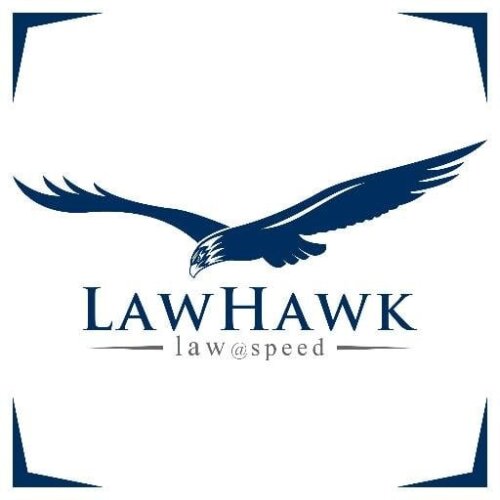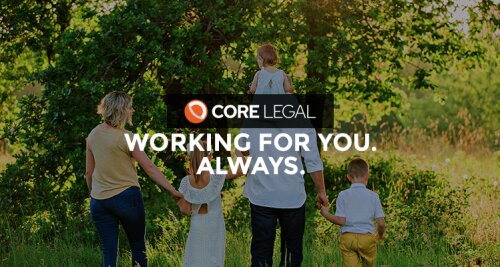Best Probate Lawyers in New Zealand
Share your needs with us, get contacted by law firms.
Free. Takes 2 min.
Or refine your search by selecting a city:
List of the best lawyers in New Zealand
New Zealand Probate Legal Questions answered by Lawyers
Browse our 1 legal question about Probate in New Zealand and read the lawyer answers, or ask your own questions for free.
- Caveat to protect financial interests
- 5 yrs care for mother. Made a claim, emailed to the administrator, 3 months after probate was granted. Advised to refrain from distributing any assets until the claim and potential abuse are resolved. Discovered abuse of the EPA. Evidence. Bank statements affidavit. No correspondence, just promises to engage. Stalled communication,... Read more →
-
Lawyer answer by Recososa Law Firm
Hello: From what you shared, you rendered care for your mother for five years and made a claim against the estate after probate was granted. You also raised issues on possible abuse of the Enduring Power of Attorney, backed up...
Read full answer
About Probate Law in New Zealand
Probate law in New Zealand concerns the legal process through which a deceased person's will is validated by the court. This process is vital for the distribution of the deceased's estate according to their wishes. Probate involves proving the authenticity of the will and appointing an executor to manage the deceased's affairs, ensuring that debts are paid, and assets are distributed properly.
Why You May Need a Lawyer
While some people may feel comfortable handling the probate process on their own, there are situations where legal assistance is beneficial:
- If the will is contested or challenged by potential beneficiaries.
- If the estate is large, complex, or involves assets in multiple jurisdictions.
- If there are disputes among beneficiaries about the distribution of assets.
- If the estate involves business assets or is subject to large debts.
- If the executor is not familiar with probate procedures.
- If the will's instructions are unclear or contradictory.
Local Laws Overview
Several key legal aspects govern probate in New Zealand:
- The Administration Act 1969 and the Probate and Administration Rules outline the process for appointing an executor and distributing assets.
- The executor is responsible for applying for probate with the High Court and must ensure the estate is administered according to the will.
- In cases where there is no will, a similar process called “letters of administration” applies, allowing a court-appointed administrator to manage the estate.
- New Zealand law requires certain notices to be published and creditors paid before the estate is settled.
- Special considerations apply to Māori land, which is governed separately under the Te Ture Whenua Māori Act 1993.
Frequently Asked Questions
What is probate and why is it necessary?
Probate is the legal process of verifying a deceased person's will, allowing an executor to distribute the estate. It's necessary to ensure that the person's final wishes are followed legally and debts are settled.
How long does the probate process take in New Zealand?
The time frame can vary but generally takes from a few weeks to several months, depending on the estate's complexity and if any disputes arise.
What if there is no will?
If there is no will, the estate is distributed under the rules of intestacy, and someone can apply for letters of administration to manage the estate.
Can the executor be a beneficiary?
Yes, an executor can also be a beneficiary of the will. Often, close family members are named as both executors and beneficiaries.
What if someone contests the will?
If a will is contested, the matter may be taken to court, which can prolong the probate process and may require legal representation.
Is probate required for all estates in New Zealand?
Probate is not always required, particularly for smaller estates without significant assets, but it is mandatory for larger assets such as real estate.
What fees are involved in the probate process?
Fees can include court filing fees, legal fees if a lawyer is engaged, and costs for any necessary appraisals or other professional services.
Can an executor be removed?
An executor can be removed by the High Court if they are not fulfilling their duties properly or if there is evidence of conflict of interest or misconduct.
What duties does an executor have?
The executor's duties include applying for probate, paying debts, filing taxes, and ensuring the estate is distributed according to the will.
How is a will validated in New Zealand?
A will is submitted to the High Court, which verifies its legality. If accepted, the court issues a probate grant empowering the executor to act.
Additional Resources
Here are some resources that can be helpful:
- New Zealand Law Society provides information and can refer you to qualified probate lawyers.
- The Ministry of Justice website offers practical information about applying for probate.
- Citizen’s Advice Bureau provides free, confidential advice and guidance on estate-related matters.
- Community Law Centres offer free legal help for those with limited financial resources.
Next Steps
If you need legal assistance for probate, consider taking the following steps:
- Gather all relevant documents, including the will, death certificate, and any financial statements.
- Contact a solicitor who specializes in probate law to evaluate your situation.
- Discuss your case with the solicitor and request a fee estimate and timeline for the process.
- If affordability is an issue, explore options such as Legal Aid, if eligible.
- Stay informed and involved throughout the process to ensure that the estate is handled according to the deceased's wishes.
Lawzana helps you find the best lawyers and law firms in New Zealand through a curated and pre-screened list of qualified legal professionals. Our platform offers rankings and detailed profiles of attorneys and law firms, allowing you to compare based on practice areas, including Probate, experience, and client feedback.
Each profile includes a description of the firm's areas of practice, client reviews, team members and partners, year of establishment, spoken languages, office locations, contact information, social media presence, and any published articles or resources. Most firms on our platform speak English and are experienced in both local and international legal matters.
Get a quote from top-rated law firms in New Zealand — quickly, securely, and without unnecessary hassle.
Disclaimer:
The information provided on this page is for general informational purposes only and does not constitute legal advice. While we strive to ensure the accuracy and relevance of the content, legal information may change over time, and interpretations of the law can vary. You should always consult with a qualified legal professional for advice specific to your situation.
We disclaim all liability for actions taken or not taken based on the content of this page. If you believe any information is incorrect or outdated, please contact us, and we will review and update it where appropriate.
Browse probate law firms by city in New Zealand
Refine your search by selecting a city.

















